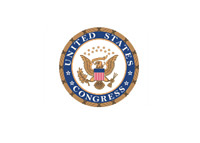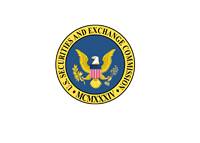SEC's Fort Worth Examination Group First Aware of Stanford Fraud in 1997, According to Report
 The Office of the Inspector General (OIG) of the Securities and Exchange Commission released a 159-page report in late March that absolutely lambasted the agency's handling (or lack thereof) of Robert Allen Stanford's "alleged" Ponzi scheme that robbed innocent investors of billions of dollars.
The Office of the Inspector General (OIG) of the Securities and Exchange Commission released a 159-page report in late March that absolutely lambasted the agency's handling (or lack thereof) of Robert Allen Stanford's "alleged" Ponzi scheme that robbed innocent investors of billions of dollars. Sound familiar?
According to the report, certain SEC examiners identified Stanford Group Company as a "risk and a target for an examination based on suspicions that its CD sales were fraudulent". When was this exactly?
1997.
That's right - a full 12 years before Robert Allen Stanford's alleged scheme finally unravelled, some in the SEC's Forth Worth office were aware that "Robert Allen Stanford was likely operating a Ponzi scheme".
As if that's not enough, the report also reveals that the SEC's Fort Worth Examination Group conducted four examinations of Stanford's operations between 1997 and 2004, coming to the conclusion EACH time that "Stanford's CDs were likely a Ponzi scheme or a similar fraudulent scheme".
With each passing year, the size of the scheme grew, from $250 million to $8 billion by the time the scheme collapsed in early 2009. This happened despite continued warnings from the SEC's Fort Worth examiners and continued inaction from the SEC's Fort Worth Enforcement program.
Despite staff awareness of a possible fraud at Stanford Group Company, a "full and thorough" investigation of the company wasn't undertaken by the SEC's Forth Worth Enforcement Division.
According to the report, "senior Forth Worth officials perceived that they were being judged on the number of cases that they brought", and "communicated to the Enforcement staff that novel or complex cases were disfavored." Instead, "quick-hit" or "slam-dunk" cases were preferred. In short - the fraud at Stanford Group was too complex to investigate, and certain people at the SEC's Forth Worth branch favored easier cases instead.
The Inspector General's report also revealed that the former head of Enforcement at the SEC's Forth Worth branch "sought to represent Stanford on three separate occasions after he left the Commission", and that he also briefly represented the company after leaving the agency before being told by the SEC Ethics Office "that it was improper to do so". This same former head of Enforcement, according to the report, "played a significant role in multiple decisions over the years to quash investigations of Stanford".
Just like in the Madoff case (which they also bungled), the SEC's failure to take decisive action against Stanford ended up costing innocent investors billions of dollars.
SEC Chairman Mary L. Schapiro recently a statement earlier today, basically saying that "much has changed" at the SEC since the time that the events detailed in the report occurred.
Source: SEC - Office of Inspector General
Filed under: Stock Market Scandals



